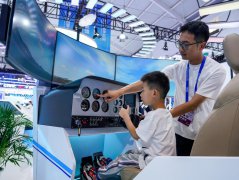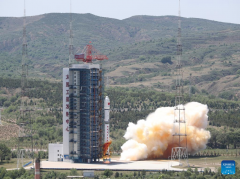Home>>
China sees rapid development of intelligent shippingBy Han Xin (People's Daily) 17:05, July 26, 2024
On the shore of the Bohai Sea, a "smart zero-carbon" terminal at the Section C of Tianjin Port's Beijiang Area was bustling with activity. Nearly 100 AI-enabled transport robots zipped back and forth, guided by the BeiDou Navigation Satellite System, setting new highs in cargo handling volume.
A 12.5-meter-deep channel downstream of Nanjing, east China's Jiangsu province along the Yangtze River, was teeming with vessels. Thanks to an automatic identification system, ships entering an electronic geofence could quickly receive real-time service information, which significantly improved navigation safety.
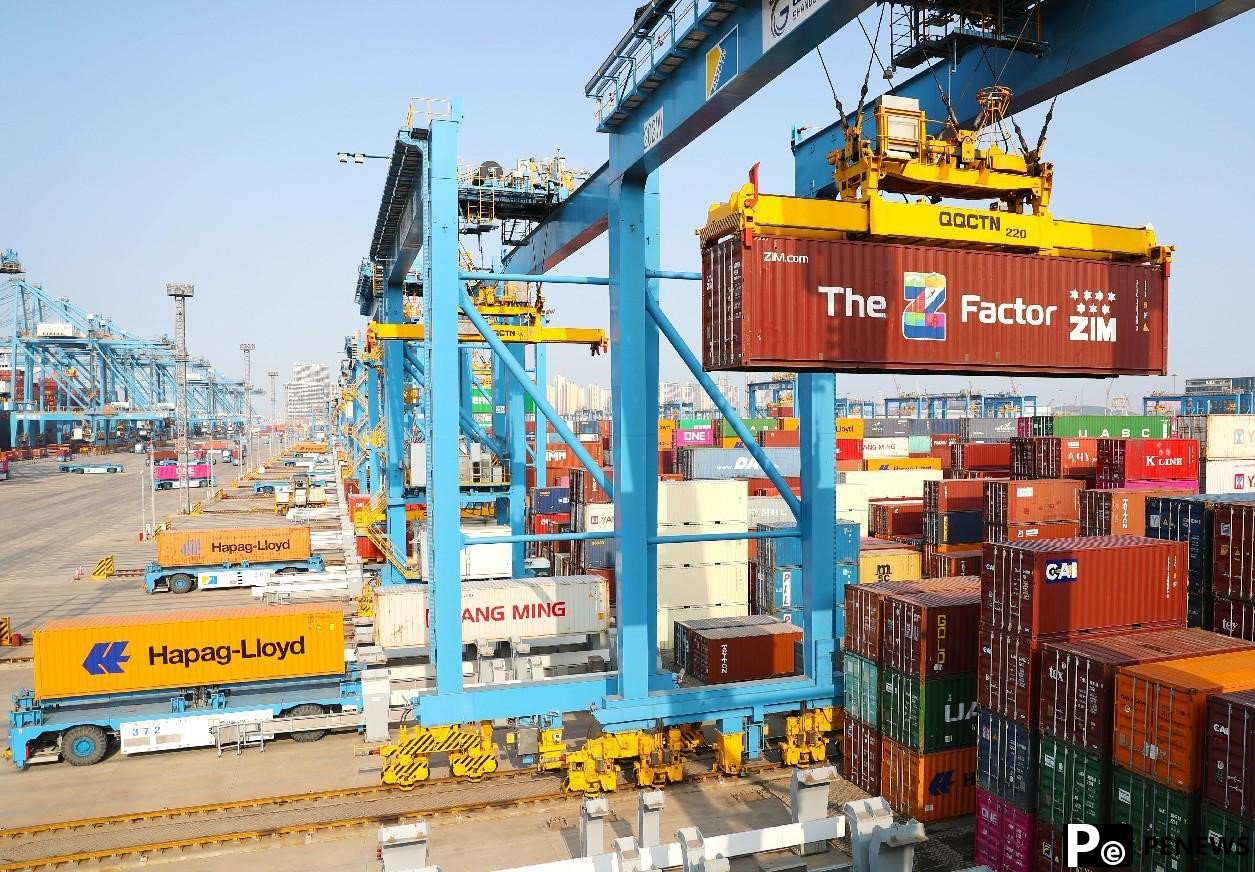
Cranes handle containers in a yard at a fully automated terminal of Qingdao Port, east China's Shandong province, March 6. (People's Daily Online/Zhang Jingang)
In the waters off Zhanjiang, south China's Guangdong province, the unmanned vessel Wenjiang traveled thousands of miles from inland rivers to the open sea for marine surveying tests and applications. Equipped with low-latency communication and high-precision positioning systems, it not only navigated autonomously but also transmitted data in real-time, expanding the potential uses for unmanned vessels.
From fully automated cargo terminals to the rapid rise of digitally managed waterways and self-navigating smart ships, "intelligence" is becoming a key feature of the high-quality development of China's shipping industry.
Smart ports are emerging rapidly across China. Nowadays, China ranks among the world leaders in both operational and under-construction automated container terminals. The country has mastered key technologies across the entire chain, from design and construction to equipment manufacturing, system integration, and operational management. Both the overall application scale and technological level are at the forefront internationally.
Meanwhile, the automation of dry bulk cargo terminals is accelerating. Qinhuangdao Port, Huanghua Port, Qingdao Port, Ningbo-Zhoushan Port, and Zhangjiagang Port have achieved full automation of dry bulk cargo handling, transitioning towards unmanned, intelligent operations.
Smart waterways continue to expand. Electronic navigational charts now cover over 5,700 kilometers of waterways nationwide, with complete coverage of the Yangtze River's main channel. The application of electronic cargo release platforms for imported containers and bulk commodities by sea is also growing.
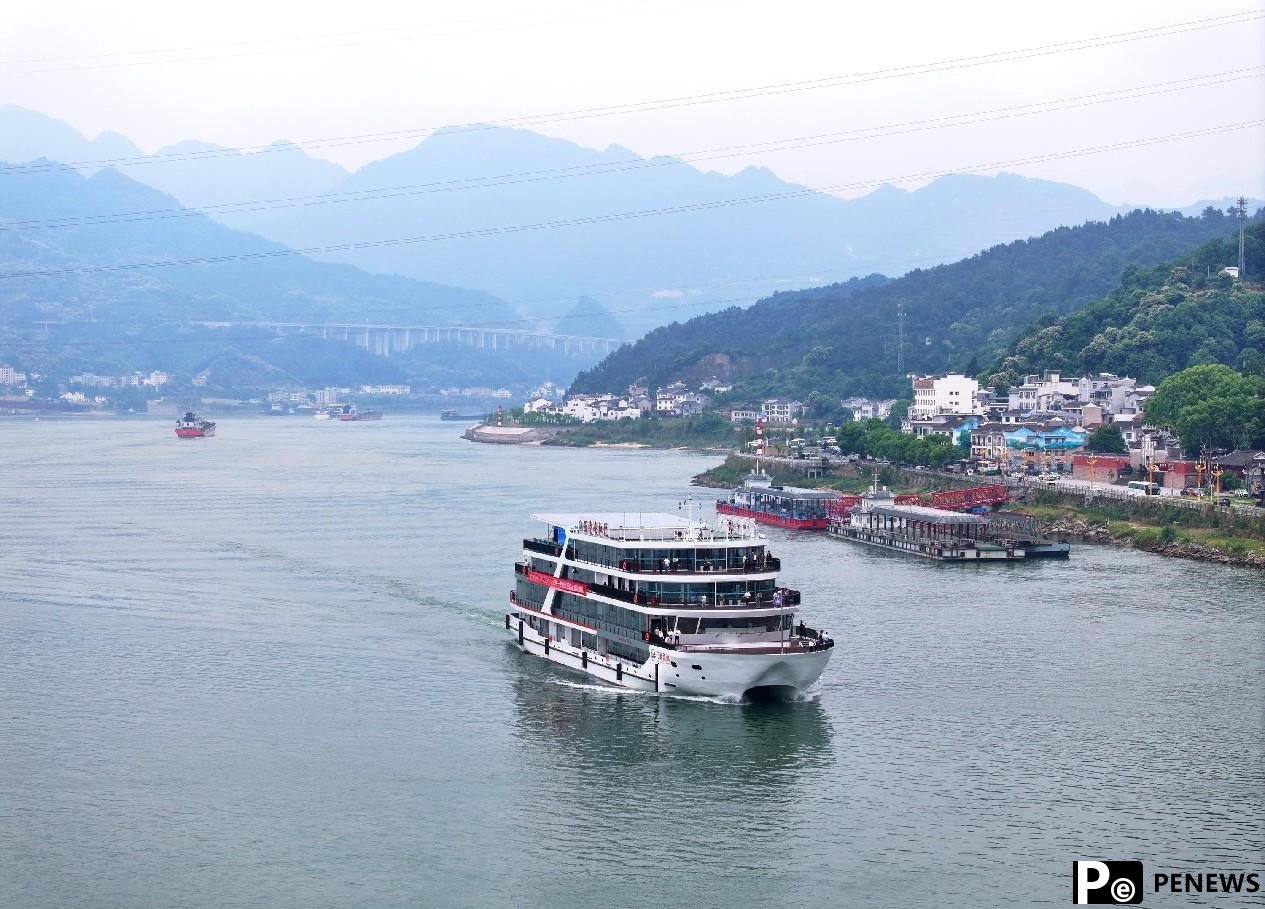
An intelligent new energy cruise ship equipped with an autopilot system sails on the waters of Sandouping, Yichang, central China's Hubei province, May 18. (People's Daily Online/Wang Gang)
Significant breakthroughs have been made in the development of intelligent vessels. China has successfully developed key technologies for intelligent navigation, including ship perception and decision-making, with some indicators leading globally.
These advancements have resulted in a series of achievements, including the Zhifei vessel which equipped with a complete set of intelligent navigation systems, over 10 self-navigating ships, and more than 1,000 vessels applying intelligent technologies. These developments have brought substantial economic and social benefits.
"Currently, a new round of technological revolution and industrial transformation is reshaping the global shipping industry, creating new driving forces and competitive advantages," said an official with China's Ministry of Transport.
It is important to maintain a coordinated approach to promote systemic upgrades, and accelerate comprehensive development in smart ports, intelligent waterways, smart ships, and intelligent shipping services, so as to continuously enhance the digital and intelligent capabilities across all elements and the entire chain of the shipping industry, the official explained.
The shipping industry not only serves as a crucial support for economic circulation but also acts as a window into economic performance. The rapid development of intelligent shipping not only demonstrates China's growing strength in the shipping sector but also reflects the vibrant energy of a nation in motion.
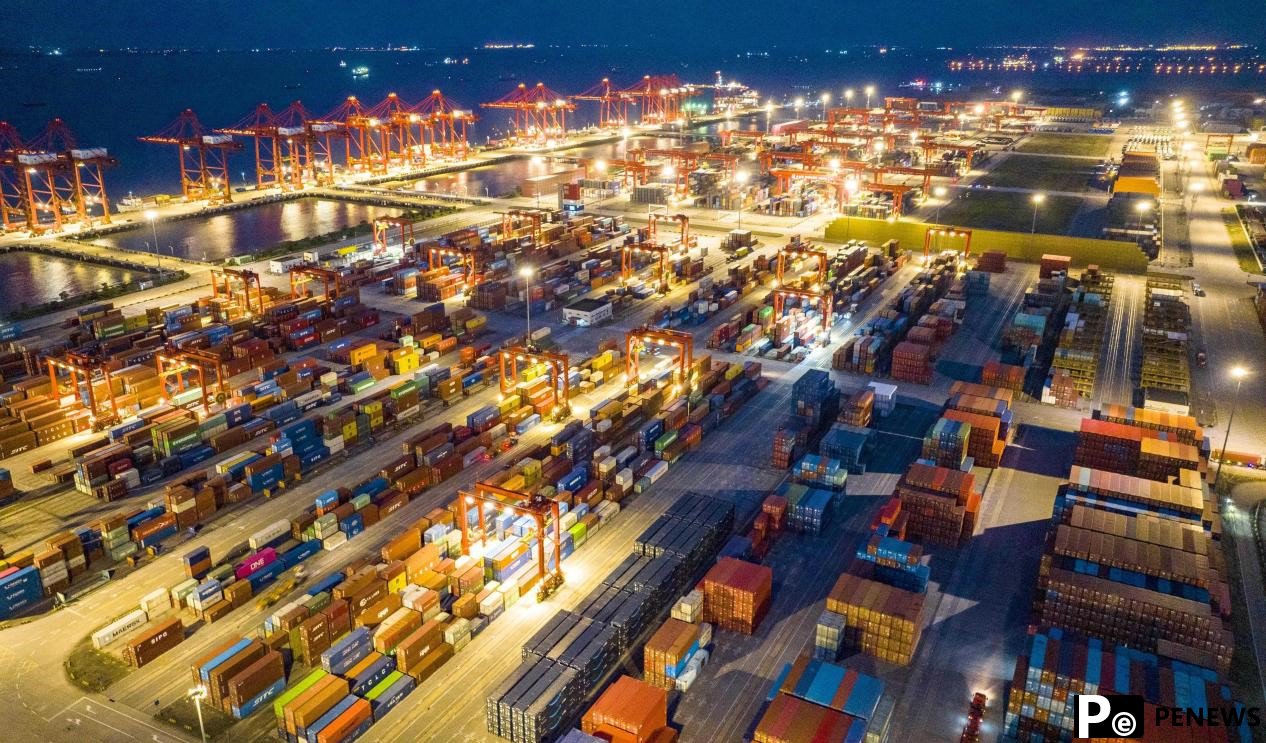
Photo shows a busy scene of an automated intelligent terminal in Taicang port area of Suzhou Port, east China's Jiangsu province, July 16. (People's Daily Online/Ji Haixin)
Since this year, many Chinese ports have seen continued growth in throughput. From January to June, Ningbo-Zhoushan Port handled 708 million tons of cargo, a 4.2 percent year-on-year increase, and processed over 19.16 million twenty-foot equivalent units of containers, up 8.4 percent from a year ago.


